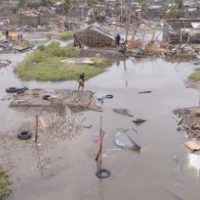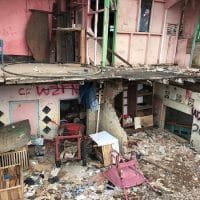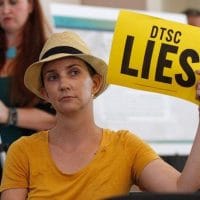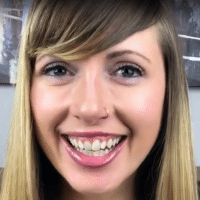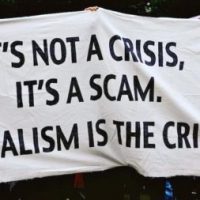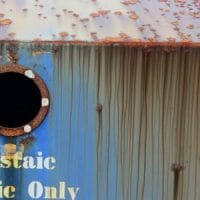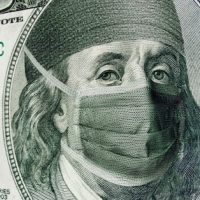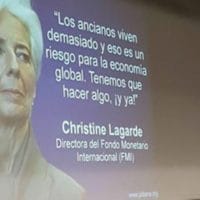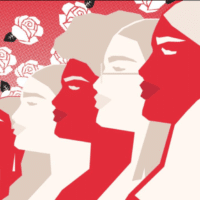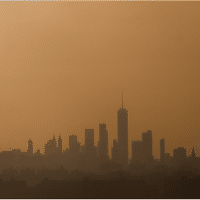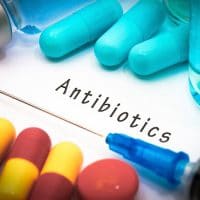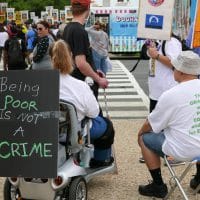-
Cyclone Idai, sanctions and capitalism
Western capitalists are to blame largely for climatic changes that causes natural and environmental disasters. Poverty, which is a result of the diabolic and pernicious economic sanctions, has forced the poor to build poor and weak structures that do not withstand the heavy winds and storms.
-
Why are people hungry in North Carolina?
Tina Tru explains the facts about hunger in North Carolina—and looks at the kinds of policies, both local and system-wide, that could make a difference.
-
GMO potato creator now fears its impact on human health
Of all the genetic engineers who have renounced the technology—Arpad Pusztai, Belinda Martineau, Thierry Vrain and John Fagan, among others—because of its shortsighted approach and ability to produce unintended and potentially toxic consequences, Caius Rommens’ story may be the most compelling.
-
Filming in the most depressing city on the Earth: Jakarta
It stinks, it is the most polluted city on earth, but that is not the most terrible thing about it.
-
Massive Woolsey fire began on contaminated Santa Susana Field Laboratory, close to site of partial meltdown
The tremendously destructive Woolsey Fire has been widely reported as beginning “near” the Santa Susana Field Laboratory (SSFL or Rocketdyne), but it appears that the fire began on the Rocketdyne property itself.
-
Reclaiming radical creativity
Podcast (co-hosted with Marine from A Privileged Vegan): veganvanguardpodcast.com ___ adrienne maree brown –
Emergent Strategy: https://www.akpress.org/emergentstrat… -
Capitalism is killing patients…and their physicians
Physician burnout, depression, and suicide increasingly invade discussions within the medical field. Depression and suicide are more common among male and female physicians, with suicide rates 1.41 and 2.27 times greater than that of the general male and female populations, respectively.
-
Did post-Soviet Russians drink themselves to death?
Although initially obscured by The Economist, among others, the sudden and unprecedented increase in Russian adult male mortality during 1992-1994 is no longer denied. Instead, the debate is now over why?
-
Plastics and fossil fuels
Follow the History of Technological Systems.
-
The U.S. medical system: healthy profits at people’s expense
The health-care industry overtook the retail sector as the nation’s largest employer in December, giving local economies and their workers a stake in the industry’s growth. Health jobs surpassed manufacturing jobs in 2008.
-
The ‘Christine Lagarde Memo’
This secret memo was discovered in the waste basket of a high-ranking staffer in the European Commission. The memo from “the Coalition” begins “Dear Angela, Teresa, Emmanuel…” and has a further list of first names—heads of state and secretaries or ministers of finance, health and human services—were mostly scribbled over with marker.
-
U.S. Nobel winner, who sold his medal to meet medical bills, dies
Leon Lederman had to auction his Nobel medal for physics to meet sky-high healthcare costs.
-
Future look 2025: the privatisation of the NHS–welcome to Little America
Back in 2019, the US/UK trade deal called the Atlantic Trade and Investment Partnership (ATIP) was signed by Washington and the new Prime Minister of Gt Britain after the failure of the previous administration to secure a deal with the European Union.
-
Gender, Labor, & Law with Emma Caterine
In this episode, we speak with Emma Caterine (@emmacaterineDSA), a law graduate and writer with more than a decade of experience working within economic justice, feminist, LGBTQ, and racial justice movements. We talk Democratic Socialists of America, MMT, the advantages of a federal jobs guarantee over a universal basic income, the place for sex work in a jobs guarantee program.
-
Capitalism vs. water
Capitalism vs. water.
-
The optimism of a victor
Finding a formula to describe Fidel is no easy task.
-
Capitalism killed our climate momentum not ‘human nature’
This Sunday, the entire New York Times Magazine will be composed of just one article on a single subject: the failure to confront the global climate crisis in the 1980s, a time when the science was settled and the politics seemed to align.
-
Microbes are striking back
Our story has a mix of the good and the bad. It shows us that science, as a collective human endeavour, has immense potential. It also shows us that as a society, under capitalism, we often do our best to undermine the fruits of human knowledge.
-
More than universal healthcare: the meaning of socialism
Young people are turning to socialism, and Democratic Party politicians are adopting the term. But what is socialism?
-
The myth of work requirements
The savings that states have projected from Medicaid work requirements come from reducing Medicaid coverage rather than by lifting people out of poverty.

